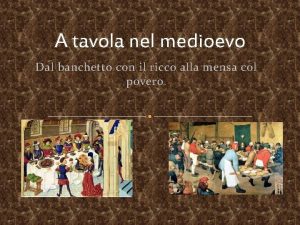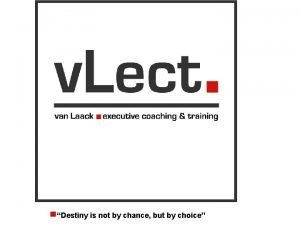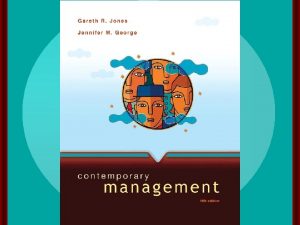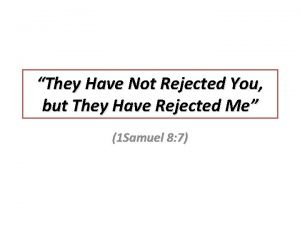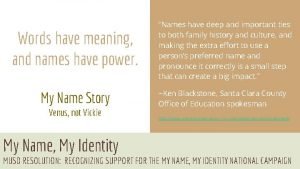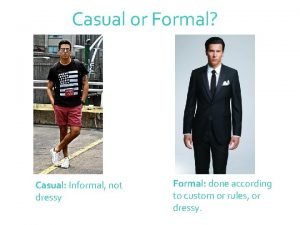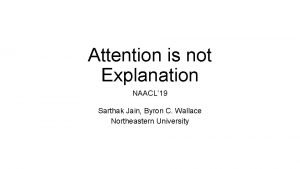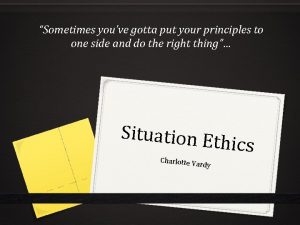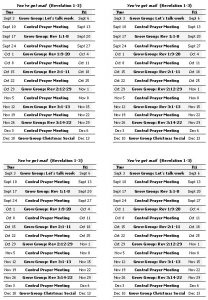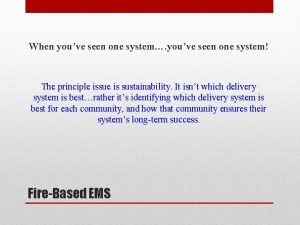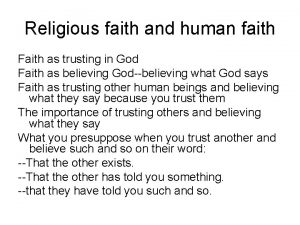Youve Gotta Have Faith Or Not Faith and











![Questions to ask RACs • Do you have to be [insert religion here] to Questions to ask RACs • Do you have to be [insert religion here] to](https://slidetodoc.com/presentation_image_h2/5b399e60fb1f083a2b97b69b6e6c4f23/image-12.jpg)











- Slides: 23

You’ve Gotta Have Faith (Or Not!) Faith and Fit in College Admission Presented by: Laurie Callaway, Regional Admission Representative, College of Saint Benedict/Saint John's University Lynn Maloney, College Counselor, Collegewise David Martinsen, Assistant Director of Admission, Villanova University Leigh Weissman, College Counselor, Collegewise

Our Purpose • Help students who are contemplating religiously affiliated colleges (RAC)—would they be a good fit? • Help independent counselors, school counselors, and other college advisors guide their students to find the right fit • Provide solid, unbiased information so that students can make educated comparisons between RACs and non-RACs

What can a student expect at a RAC compared to a non-RAC? • Typical measures of success are still important (grades and academic achievements). • Focus on the development of the whole person. • Religion will be discussed. • Opportunities to explore spirituality outside the classroom.

What kinds of students are a good fit for RACs? • Open-minded • Service-oriented Successful at any college! • Collaborative • Good character traits • Curious about faith • Perhaps they have attended a religiously affiliated high school

What kinds of students are not a good fit for RACs? • Rigid • Inflexible • Not open to questioning existentialism and faith • Cynical about religion • Uninterested in their own spiritual growth

Four Types of RACs from Quality with Soul by Robert Benne Types of Religiously Affiliated Colleges Orthodox Critical Mass Intentionally Pluralist Accidentally Pluralist

Orthodox • “Most religious” • School is run based on its founding religion • Faculty must sign a statement of belief • Students may have to sign a statement of belief • Theology courses required • Other subjects will be taught from a religious perspective • Attendance at religious services may be required; if not required, most students still attend

Critical Mass • Not all members of the community are required to adhere to the religion of the school – Usually representing a “critical mass” in a certain religion or denomination – Could be as high as 75% • Some parts of the campus will be secular • Open-ended religious requirements • Religious services rarely required but popular • Intentional integration of religious diversity

Intentionally Pluralist • Were founded on religion, but have become more secular. • Sometimes the campus community knows little about their religious roots. • Required courses may include philosophy as an option instead of theology. • Religious services offered, but may be designed for students of many different faiths. • Religious groups on campus are unlikely founded based on institutional initiatives. • May have religious offices on campus of different faiths (e. g. , a Catholic college may have a Rabbi on staff).

Accidentally Pluralist • Founded on religion, but no longer have any religious vision for how they are run. • Religious traditions on campus are rare. • Electives offered in modern religion, but not required. • Chapel on campus is likely used for events other than religionbased services, and if it is religious, it’s multi-faith. • This is a secular college religious in name or history only.

How do you know where a RAC falls on the spectrum? • Usually a mixture—not cut and dry. • Look at the mission statement. • Ask about organizations for students of other faiths. • Use resources, such as: Colleges with Hillel and Kosher Dining: guide http: //www. hillel. org/college- Council for Christian Colleges & Universities: http: //www. cccu. org/ The Newman Guide of Catholic Colleges: http: //www. cardinalnewmansociety. org/The. Newman. Guide/Recommended. C olleges. aspx
![Questions to ask RACs Do you have to be insert religion here to Questions to ask RACs • Do you have to be [insert religion here] to](https://slidetodoc.com/presentation_image_h2/5b399e60fb1f083a2b97b69b6e6c4f23/image-12.jpg)
Questions to ask RACs • Do you have to be [insert religion here] to attend? • Will I be required to take religious courses? • Are other classes on campus (history, philosophy, literature, political science, business, etc. ) also taught from a religious perspective? • Will I be required to attend worship services?

Questions to ask RACs (continued) • Do I get a special scholarship if I’m graduating from a [insert religion] high school and I’m accepted to your [insert religion] college? • Is the “religious preference” I list on my application something that the admission office will take into consideration? • Do I get “bonus points” on my application for being [insert religion]? Or would it be better for me to not be [insert religion] to add to your diversity?

Questions to ask RACs (continued) • Are the dorms co-ed or single-sex? And are there rules about how late a boy/girl can be in your dorm room? • How is your college approaching the LGBTQ community?

LGBTQ Students and Religious Colleges • LGBTQ students can and should consider religious institutions • LGBTQ students can also be spiritual or religious, or be open to a religious education • Look into the specific institution’s policies and statements on how they regard LGBTQ students • Title IX – prohibits sex/gender discrimination but can be waived upon a school’s request

Questions to Ask for LGBTQ Students • Is there a statement of faith that students are supposed to swear to, and if so, how does the statement of faith pertain to LGBTQ students? • Does the school have a statement on how they treat LGBTQ students? Does the school have a specific statement of policy when it comes to trans students? • How does the school handle housing LGBTQ students (especially true for trans students)? • Does the school allow LGBTQ clubs on campus, and if so, do they fund them? • If a student has a same-sex relationship of any kind or is gender nonconforming, is it policy for the school to revoke housing or financial aid, or to change a student’s enrollment status? • Has the school requested an IX waiver of the prohibitions against sex or gender discrimination?

What should an applicant to a RAC be aware of? • They still look at things like GPA, rigor of courses, standardized test scores, etc. • They still read (if required) lists of extracurricular activities and achievements, essays, and letters of recommendation. • There might be something extra. . . – Pastoral references – Faith-based supplemental questions

Examples of Supplements • Directly faith related: – Example: On the Common App, Westmont College asked the following supplemental question of those who applied for the Fall 2015 semester: • “Westmont College exists to serve God's kingdom by cultivating thoughtful scholars, grateful servants and faithful leaders for global engagement with the academy, church and the world. How do you see yourself contributing to and benefitting from a Christian liberal arts college with a unique mission? (250 - 500 words)”

Examples of Supplements • Indirectly faith related: • Example: On the Common App, Pepperdine University asked the following supplemental question of those who applied for the Fall 2015 semester: – “As a Christian university, Pepperdine expresses its Christian principles through all aspects of academic life and administrative policy. The university affirms that truth, having nothing to fear from investigation, should be pursued relentlessly in every discipline. Students, faculty, and staff members of all faith traditions are welcome to become part of the Pepperdine University community. Please tell us a little bit about how faith has influenced your life. (50 -300 words)”

Examples of Supplements • Related to their religious founder/background: • Example: On the Common App, University of Notre Dame gave their Fall 2015 applicants the following prompt as one of their four supplemental essay options: – “Blessed Basil Moreau, the founder of the Congregation of Holy Cross, described education as ‘the art of helping young people to completeness. ’ How are you incomplete? (Approx 150, no more than 200 words).

Questions and Discussion

Special Thanks Ashley Alvarado, Assistant Director of Admission, Pepperdine University Cindy Babington, VP for Admission and Financial Aid, De. Pauw University Susan Dileno, VP of Enrollment Management, Ohio Wesleyan University Hollie Jackson, Director of Enrollment, The Master’s College Matthew Kerlin, Assistant Vice President of Spiritual Life, Samford University Matt Fissinger, Director of Undergraduate Admissions, Loyola Marymount University André Stephens, Associate VP of University Admissions, Biola University

Thank you! Laurie Calloway: lcallaway@csbsju. edu Lynn Maloney: lynnm@collegewise. com David Martinsen: david. martinsen@villanova. edu Leigh Weissman: leighw@collegewise. com
 Site:slidetodoc.com
Site:slidetodoc.com Youve been amazing
Youve been amazing What is the largest organ in the body
What is the largest organ in the body You gotta keep your head up
You gotta keep your head up Language
Language Formal slang
Formal slang Gotta medioevo
Gotta medioevo Just own the night figurative language
Just own the night figurative language Dead faith vs living faith
Dead faith vs living faith Uncontrolled, lacking in restraint
Uncontrolled, lacking in restraint 8 vertices and 12 edges.
8 vertices and 12 edges. That your faith should not stand
That your faith should not stand Destiny is not by chance but by choice
Destiny is not by chance but by choice Therefore since we have been justified by faith
Therefore since we have been justified by faith Fourethics
Fourethics Who should we help
Who should we help Being too broad
Being too broad Samuel they have rejected me
Samuel they have rejected me Words have meaning and names have power
Words have meaning and names have power Zoological riddles challenge
Zoological riddles challenge What is a echinoderm
What is a echinoderm If you are not confused you're not paying attention
If you are not confused you're not paying attention Informal casual
Informal casual Attention is not not explanation
Attention is not not explanation






